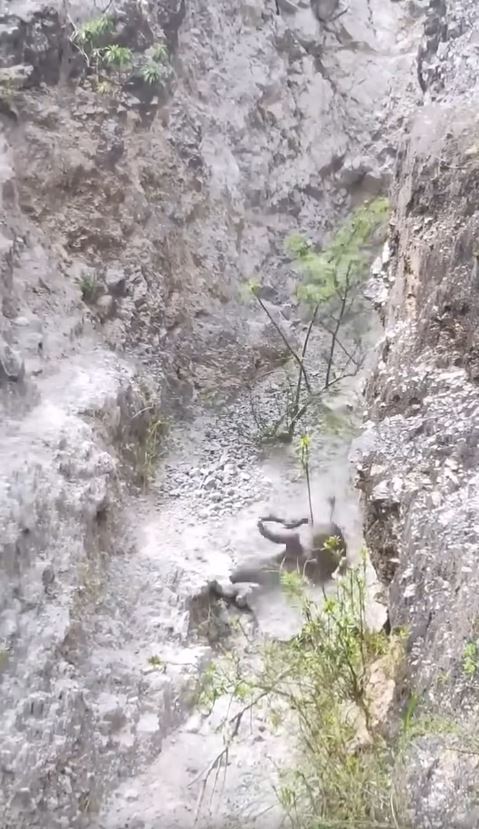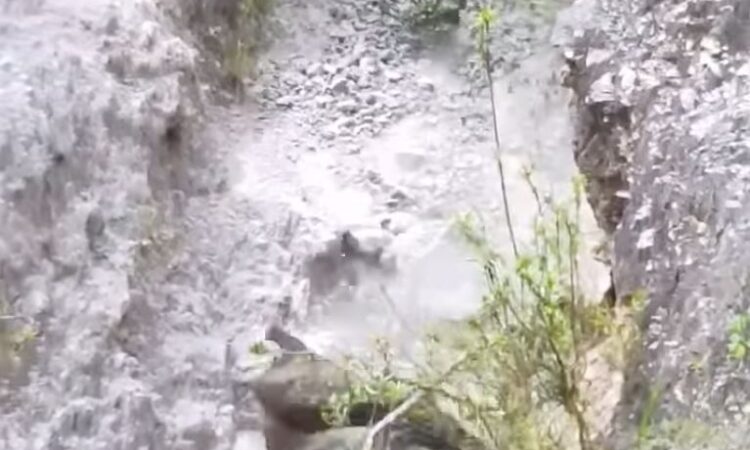There are creatures that seem forged from the very material of their landscape. The wild boar is one such being. It is a creature of iron will and bristling muscle, a force of nature that moves through the undergrowth like a shadow with weight. To see one is to witness something untamed, a living piece of a world that existed long before our roads and fences. They belong to the mountain, and in a way, the mountain belongs to them.
That is why the thought of one falling is so profoundly arresting.
It’s not a story you hear often, or one you’d even think to invent. A boar does not simply fall. It is a master of terrain, its hooves like anchors in the shifting scree. It navigates impossible inclines with a low-slung, powerful grace. For it to fall from a mountain cliff feels like a contradiction, a tear in the fabric of the natural order.

The sadness of it is a strange and heavy thing. It’s not the weeping sadness one feels for a beloved pet. It’s a deeper, more philosophical melancholy. It begins with the image of that immense power rendered utterly helpless. A life of grit, survival, and dominance ended not by a predator’s tooth or a hunter’s arrow, but by a simple, indifferent force: gravity.
Imagine the moment. A misstep on a wet stone. A patch of earth giving way after a hard rain. A sudden vertigo against the vast, empty canvas of the sky. In that split second, all its strength, all its fierce determination, counted for nothing. The boar, a muscle of the earth, was suddenly at the mercy of the air.
This is where the sadness truly takes root. The fall represents the ultimate vulnerability that lies beneath all strength. We build our lives like fortresses, believing in our own resilience, our own cleverness, our own power to endure. We climb our own personal mountains, carefully placing each foot. But the story of the fallen boar is a stark reminder that the cliff edge is always closer than we think. The universe doesn’t negotiate. A single, unseen variable can change everything.
There is also the sadness of the sheer waste. A life lived with such intensity, such purpose—to forage, to fight, to survive—concluded in a silent, lonely plummet. There was no struggle, no grand battle. Just a beginning, a middle, and an abrupt, vertical end. The mountain, which had been its sanctuary and its kingdom, became its executioner without a flicker of intent. The rocks below received it with the same dispassion they receive the rain and the sun.
To find it later, a heap of bristle and stillness at the mountain’s base, would be to confront a silent lesson. The energy that once tore through the forest is gone, absorbed back into the dirt. The fierce eyes are closed. The formidable tusks are now just relics. It is a testament to the fact that every force, no matter how powerful, must eventually yield.
The sadness of the wild boar’s fall is the sadness of realizing that wildness itself is fragile. It is the grief for a strength we admired, brought low by a common, mundane law of physics. It is the quiet ache in our own hearts, recognizing that for all our striving, we, too, are subject to the weight of the sky and the hardness of the ground below. The mountain doesn’t mourn, but for those of us who look up at its peaks and feel a sense of awe, we can feel the loss of one of its truest kings.
